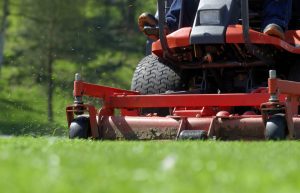California Assembly Bill 1346, signed into law by Governor Gavin Newsom on October 9, 2021, seeks to eliminate the retail sale of new gas-powered, small off-road engines (SORE) as early as January 1, 2024.
It now becomes the responsibility of the California Air Resources Board (CARB) to develop and implement a plan to enforce the law. CARB defines SOREs as “spark-ignition engines rated at or below 19 kilowatts (25 hp).”
The list of impacted equipment, according to the Tree Care Industry Association (TCIA), includes:
- Hand-held and backpack leaf blowers
- Hand-held grass trimmers
- Hand-held hedge trimmers
- Hand-held pole pruners
- Hand-held and ground-supported edgers
- Pressure washers
- Snow blowers
- Wood splitters
- Chain saws (less than 45cc displacement)
- Walk-behind lawn mowers
- Riding lawn mowers
Only the sale of gas-powered SORE equipment at retail locations is to be banned, not the use of it.
Air compressors, larger chain saws, brush cutters (greater than 40cc), chippers, shredders, grinders, stump grinders, pumps (greater than 40cc), and welders are federally exempt from state regulations.
CARB data states there are 16.5 million SOREs in use in California, 76 percent of which includes residential lawn and garden equipment, and that operating a leaf blower for 1 hour generates the emissions equivalent of driving a 2016 Toyota Camry from Los Angeles to Denver (approximately 1,100 miles).
CARB’s goal is an 80 percent reduction of carbon emissions from mobile sources by 2031. “Significant emission reductions will be achieved through a combination of regulatory and incentive approaches, and a major shift to zero- emission electric equipment will be needed to meet the 80 percent reduction goal,” CARB states.
State regulators currently have an available budget of $30 million to offer rebates for those looking to make the transition from SORE to zero-emissions equipment (ZEE), reports OEM Off-Highway.
Industry opposition
Regulations beginning in California have a history of being adopted by other states and even on a federal level, which is why industry organizations pay close attention to California legislation.
Industry concerns regarding SORE legislation are:
- Costly impact: New ZEE equipment costs twice as much as SORE equipment.
- ZEE equipment is less powerful.
- Batteries on ZEE equipment have less running time than gas-powered SORE equipment.
- Recharging ZEE equipment during the day will be burdensome to many small businesses.
“Transitioning to zero-emission equipment, as outlined in the California law, requires a significant upfront investment,” states a press release issued by the National Association of Landscape Professionals (NALP). The budget for upgrades is “woefully inadequate” and offers “a rebate of only $15 per piece of equipment compared to the hundreds to thousands of dollars each piece of equipment would cost to purchase new. Tax incentives and a much larger fund are needed to help professional landscape companies make the transition.”
“The proposed implementation, by the year 2024, does not take into consideration the deficiencies associated with current zero-emission equipment for commercial uses,” continues the press release. “It is less powerful, doesn’t work as well on slopes and grades, and takes significantly more time to complete the same task as existing equipment.
“Additionally, California lacks the infrastructure necessary to make the transition. Rolling blackouts in California demonstrate that the electric infrastructure needed to maintain charges on battery-powered equipment is insufficient … There is a lack of dealers and mechanics capable of servicing zero-emission equipment, which, because it is newer technology, requires a large number of highly experienced technicians to handle what will be a significantly increased demand for product servicing. Also, landscape companies would need to upgrade and redesign facilities to support a large number of charging stations and greatly increased electrical loads.”
Others, such as California Senator Brian Dahle, R-Bieber, have protested the law because of its ban on generators in a state prone to power loss where the loss of electricity means no power to charge batteries, reports Lookout Santa Cruz.
California Assemblyman Marc Berman authored the legislation and said concerns about not being able to operate generators have been taken into account, “and the law specifically requires [CARB] to adjust the restrictions on generators based on their ‘expected availability’ of that equipment on the commercial and retail market,” the Lookout article adds.
While industry organizations such as the NALP, the TCIA, and the Outdoor Power Equipment Institute (OPEI) welcome emissions reductions and agree battery technology is the future, their concern is the “truncated timeline” for the California regulations.
“As an industry, we care deeply for the environment,” states the NALP press release. “At the same time, we value our businesses, employees, and the customers and communities we serve. We must chart a path forward to move beyond gas-powered equipment, but we must do so responsibly and equitably in a way that does not punitively single out the landscape industry and its tens of thousands of entrepreneurs and employees.”

